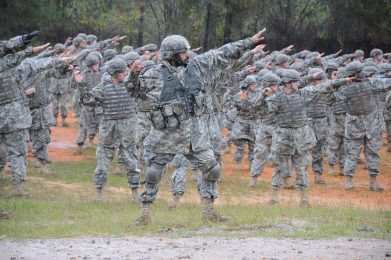Overview
In this unit, you will participate in a mock trial that explores the rights and restrictions on individuals attempting to practice their own religion. Students will first familiarize themselves with the Religious Freedom and Restoration Act (“RFRA”), which was intended to further protect First Amendment rights. You will then read and analyze case documents adapted from a real federal court case, Singh v. Carter, which involved a conflict between a soldier’s desire to exercise his religious practices and the U.S. Army’s interest in protecting its soldiers through uniform and safety requirements.
After learning about the relevant law and facts, you will participate in a mock trial that will allow you to use their knowledge to persuade judges to find either that the soldier’s religious practice is protected by RFRA, or that the Army has an overriding safety concern that forbids the soldier from exercising his religion. The mock trial allows you to assume roles as members of the plaintiff’s team, members of the defendant’s team, neutral judges, or impartial courtroom participants. Each of you will have a substantive role in deciding or observing a dispute that remains pertinent today. You will engage in the authentic tasks of examining and weighing evidence, and using facts and evidence to formulate and present claims.
Unit Questions
- How has Congress interpreted the First Amendment’s freedom of religion clause?
- Can we impose limits on religious freedom? If so, when and how can we do so?
Lesson 1: Religious Freedom Mock Trial
Lesson 2: Articulating and Applying the Law
Lesson 4: Developing a Theory of the Case
Lesson 5: Preparing for Trial

